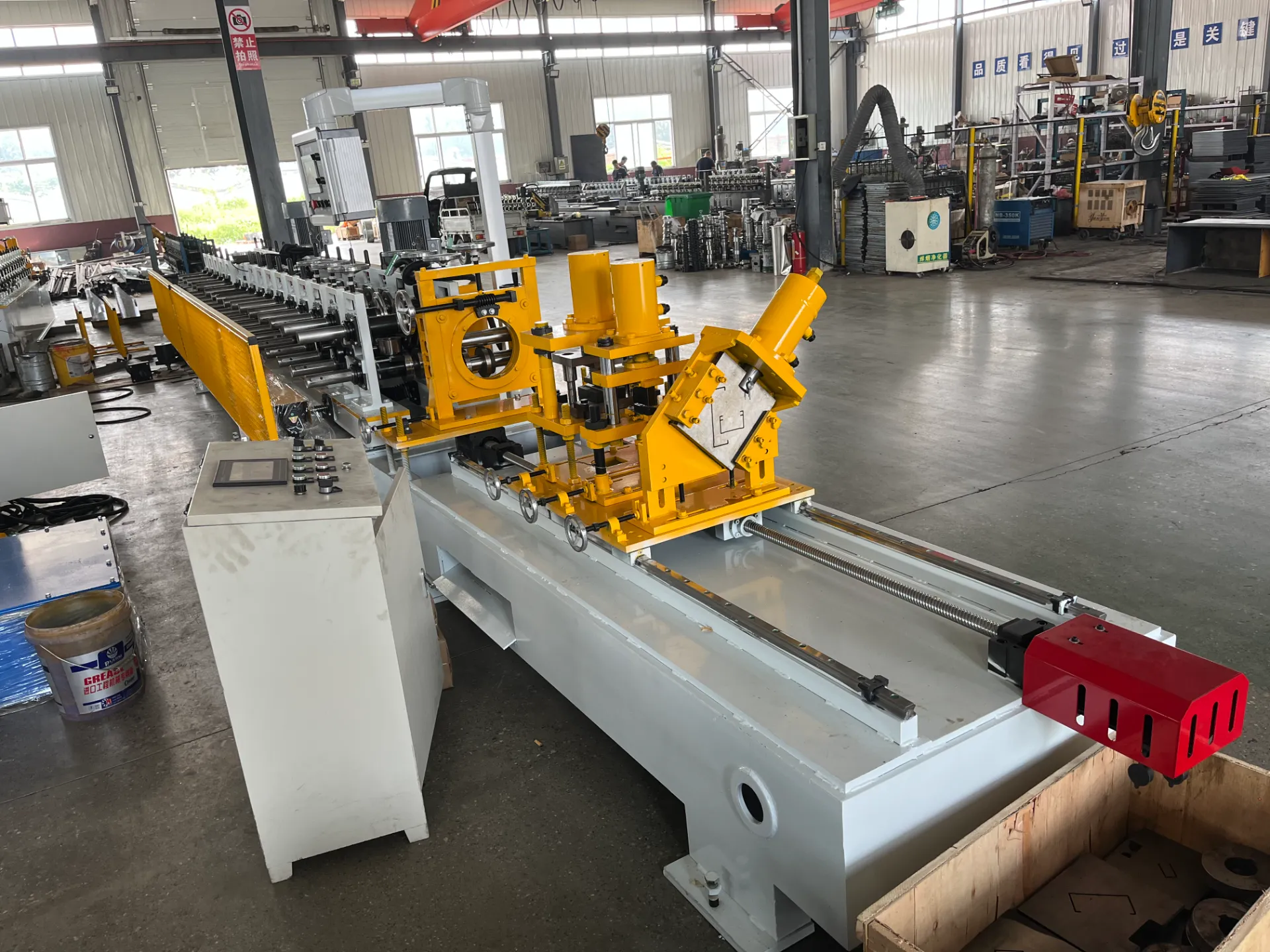High-Quality Roll Forming Machines Available for Purchase and Customization Options
The Advantages of Roll Forming Machines for Sale
In the field of manufacturing and metal processing, efficiency and precision are paramount. One of the most effective ways to achieve this is through the use of roll forming machines, which are increasingly being recognized for their versatility and capability in producing high-quality metal sections. For businesses looking to expand their production capabilities, investing in roll forming machines for sale can be a game-changer.
Understanding Roll Forming Machines
A roll forming machine is a type of industrial equipment used to create long lengths of sheet metal or strip metal into specific shapes and profiles. The process involves feeding a continuous coil of metal through a series of rollers, which gradually shape the material into the desired cross-section. This method is particularly useful for producing complex shapes that would be difficult or costly to achieve through other manufacturing processes like stamping or cutting.
Key Benefits of Roll Forming
1. Efficiency in Production One of the most significant advantages of roll forming machines is their high production efficiency. The ability to process materials continuously allows for rapid manufacturing, which can lead to reduced lead times. As the machine operates, it can produce thousands of feet of shaped metal, minimizing waste and maximizing output.
2. Consistent Quality Roll forming machinery is designed to create uniform products with high precision. The continuous nature of the process and the use of fixed tooling ensure that every piece produced meets stringent quality standards. This is essential in industries where precision is critical, such as automotive, construction, and appliance manufacturing.
3. Material Versatility Roll forming machines can work with a variety of materials, including steel, aluminum, and even certain plastics. This versatility allows companies to choose the best material for their specific needs and to adapt quickly to market demands.
roll forming machine for sale

4. Customization Capabilities Many manufacturers that sell roll forming machines offer customization options. This means businesses can design specific shapes and profiles tailored to their particular applications, thus enhancing their product offerings. This flexibility is vital in a competitive market, where unique solutions can set a company apart from its rivals.
5. Cost-Effectiveness Although the initial investment in a roll forming machine may seem significant, the long-term savings are noteworthy. Continuous production reduces labor costs, and lower material waste means reduced expenses. Additionally, the durability and reliability of these machines often lead to a long operating life, providing a good return on investment.
6. Space Efficiency Roll forming machines can often be more compact than other types of manufacturing equipment. They require less floor space, which is particularly beneficial for companies facing space constraints. This compact design does not compromise on production capabilities, allowing businesses to maximize their operational efficiency.
7. Scalability As your business grows, your manufacturing processes may need to adapt. Roll forming machines are scalable, meaning they can be adjusted to increase production capacity or accommodate changes in design without significant changes to the equipment.
Finding the Right Roll Forming Machine
When considering the purchase of a roll forming machine, it's essential to evaluate various factors. The type of material you'll be working with, the desired profile shape, and the expected production volume are all critical considerations. It's also advisable to seek out reputable manufacturers or suppliers who provide not only high-quality machines but also technical support and training.
In summary, investing in roll forming machines for sale offers numerous advantages for manufacturers looking to enhance their production capabilities. With benefits including improved efficiency, consistent quality, material versatility, and cost-effectiveness, roll forming can significantly benefit sectors ranging from construction to automotive. As the industry continues to evolve, businesses that embrace this innovative manufacturing process will likely remain competitive and poised for growth in the ever-changing marketplace.
-
Roof Panel Machines: Buying Guide, Types, and PricingNewsJul.04, 2025
-
Purlin Machines: Types, Features, and Pricing GuideNewsJul.04, 2025
-
Metal Embossing Machines: Types, Applications, and Buying GuideNewsJul.04, 2025
-
Gutter Machines: Features, Types, and Cost BreakdownNewsJul.04, 2025
-
Cut to Length Line: Overview, Equipment, and Buying GuideNewsJul.04, 2025
-
Auto Stacker: Features, Applications, and Cost BreakdownNewsJul.04, 2025
-
Top Drywall Profile Machine Models for SaleNewsJun.05, 2025








